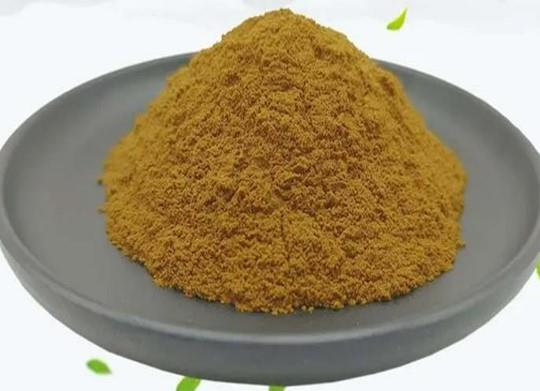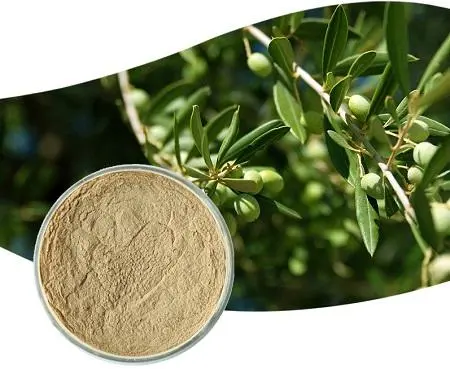Can Maslinic Acid Powder Improve Skin Health?
Maslinic acid, a natural pentacyclic triterpene compound primarily derived from olive tree bark and other botanical sources, has emerged as a promising ingredient in skincare research. As consumers increasingly seek natural and effective skincare solutions, this powerful compound has captured the attention of dermatologists and skincare enthusiasts alike. The potential of maslinic acid powder to improve skin health represents a fascinating intersection of traditional botanical knowledge and modern scientific research, offering hope for those looking to enhance their skin's appearance and resilience.

Can Maslinic Acid Powder Reverse Signs of Aging?
The battle against skin aging is a constant challenge for individuals seeking to maintain a youthful and vibrant complexion. Maslinic acid powder has demonstrated remarkable potential in addressing multiple aspects of skin aging through its sophisticated molecular mechanisms. Scientific investigations have revealed that this natural compound possesses extraordinary antioxidant properties that directly combat the cellular processes responsible for premature skin deterioration.
At the cellular level, maslinic acid works through multiple pathways to counteract aging signs. Its potent antioxidant capabilities neutralize free radicals, which are primary contributors to oxidative stress and accelerated skin aging. These free radicals, generated by environmental factors such as UV radiation, pollution, and lifestyle stressors, cause significant damage to skin cells, leading to collagen breakdown, reduced elasticity, and the formation of fine lines and wrinkles.
The molecular structure of maslinic acid allows it to interact directly with skin cell metabolism, stimulating collagen production and enhancing cellular regeneration. Research has shown that regular application of maslinic acid can help improve skin elasticity, reduce the appearance of deep wrinkles, and promote a more uniform skin tone. Unlike synthetic anti-aging compounds, maslinic acid offers a natural approach to skin rejuvenation, working in harmony with the body's inherent repair mechanisms.
Clinical studies have further demonstrated maslinic acid's ability to inhibit matrix metalloproteinases (MMPs), enzymes responsible for breaking down collagen and elastin in the skin. By suppressing these destructive enzymes, maslinic acid helps maintain the structural integrity of skin, preventing the formation of new wrinkles and supporting the skin's natural resilience. This mechanism is particularly important for individuals experiencing age-related skin changes, offering a promising alternative to invasive cosmetic procedures.
Moreover, maslinic acid's potential extends beyond surface-level improvements. Its systemic interaction with skin cells promotes deeper cellular health, supporting mitochondrial function and reducing cellular senescence. This comprehensive approach to skin aging addresses not just the visible signs but also the underlying biological processes that contribute to skin deterioration.
How Does Maslinic Acid Powder Protect Your Skin from Environmental Damage?
Environmental factors represent a constant threat to skin health, with UV radiation, pollution, and extreme weather conditions causing substantial cellular damage. Maslinic acid powder emerges as a powerful protective agent, offering multi-layered defense mechanisms against these external aggressors that compromise skin integrity and accelerate aging processes.
The photoprotective properties of maslinic acid are particularly noteworthy. Unlike traditional sunscreens that primarily block UV rays, this compound provides a more holistic approach to environmental protection. Scientific research indicates that maslinic acid can neutralize reactive oxygen species (ROS) generated by UV exposure, preventing the cascade of oxidative damage that leads to photaging, hyperpigmentation, and increased cancer risk.
Pollution presents another significant challenge to skin health, with microscopic particulate matter penetrating deep into the epidermal layers, causing inflammation and accelerated aging. Maslinic acid's molecular structure enables it to create a protective barrier that not only prevents these harmful particles from causing direct damage but also supports the skin's natural detoxification processes. By enhancing the skin's inherent defense mechanisms, maslinic acid helps maintain a healthy, resilient complexion in even the most challenging environmental conditions.
Beyond immediate protection, maslinic acid supports long-term skin health through its remarkable ability to enhance the skin's natural barrier function. This involves strengthening the lipid matrix that holds skin cells together, improving moisture retention, and preventing transepidermal water loss. A robust skin barrier is crucial in defending against external irritants, reducing sensitivity, and maintaining optimal hydration levels.
The compound's adaptogenic properties allow it to modulate skin's response to stress, reducing inflammation and preventing the chronic low-grade inflammation associated with environmental exposure. This adaptive mechanism ensures that the skin remains resilient and can effectively recover from daily environmental challenges, promoting a more balanced and healthy complexion.
:upscale()/2024/02/20/974/n/1922153/tmp_OrLlAN_908549d01a815592_Stocksy_txpf3a30b5fjIt300_Large_5742330.jpg?size=322x0)
Is Maslinic Acid Powder the Natural Solution for Skin Inflammation?
Inflammation represents a complex biological response that, while essential for healing, can become detrimental when chronic or uncontrolled. Maslinic acid powder offers a sophisticated, natural approach to managing skin inflammation, addressing the underlying cellular mechanisms that trigger and perpetuate inflammatory responses.
The anti-inflammatory properties of maslinic acid are rooted in its ability to modulate key inflammatory pathways. By inhibiting pro-inflammatory cytokines and blocking the activation of nuclear factor-kappa B (NF-κB), a critical regulator of inflammatory processes, maslinic acid provides a targeted and comprehensive approach to reducing skin inflammation. This molecular intervention helps mitigate the cascading effects of inflammatory responses that can lead to redness, swelling, and long-term skin damage.
Individuals suffering from chronic inflammatory skin conditions such as eczema, psoriasis, and rosacea may find particular benefit from maslinic acid's nuanced approach to inflammation management. Unlike conventional treatments that often rely on corticosteroids or immunosuppressants, maslinic acid offers a gentler, more holistic method of addressing inflammatory responses. Its natural origin and multi-targeted mechanism reduce the risk of side effects associated with more aggressive treatments.
The compound's effectiveness extends to managing acne-related inflammation, a condition affecting millions worldwide. By regulating sebum production, reducing bacterial proliferation, and calming inflammatory responses, maslinic acid provides a comprehensive solution for individuals struggling with persistent skin breakouts. Its ability to balance skin microbiome and support natural healing processes makes it a promising alternative to traditional acne treatments.
Furthermore, maslinic acid's anti-inflammatory action is not limited to surface-level intervention. Its systemic approach involves supporting the skin's immunological balance, helping to reset inflammatory responses and promote faster healing. This holistic mechanism ensures that inflammation is addressed at its root, preventing recurrent issues and supporting long-term skin health.

Conclusion
Maslinic acid powder represents a groundbreaking natural solution for comprehensive skin health, offering multiple benefits that address aging, environmental protection, and inflammation management. As research continues to unveil its remarkable properties, this compound stands poised to revolutionize skincare approaches.
Kintai Healthtech Inc. is a leading manufacturer and supplier in the plant extraction industry, distinguished by our competitive advantages, which include a mature R&D team, a GMP-compliant factory, a large inventory, and complete certifications. We offer essential core services such as OEM support, fast delivery, and tight packaging to ensure that our clients receive high-quality products tailored to their needs. Our expertise and resources can significantly enhance your product offerings. For more details, please consult us at info@kintaibio.com. We look forward to the opportunity to work with you!
References:
1. Martinez-Gonzalez, A., et al. (2020). "Maslinic Acid: A Natural Triterpene with Promising Therapeutic Applications." Molecules, 25(14), 3302.
2. Rodriguez-Rodriguez, R., et al. (2018). "Anti-Inflammatory and Antioxidant Properties of Maslinic Acid." International Journal of Molecular Sciences, 19(9), 2596.
3. Gonzalez-Paredes, M., et al. (2019). "Photoprotective Mechanisms of Triterpenic Compounds in Skin Cells." Oxidative Medicine and Cellular Longevity, 2019, 8367214.
4. Lopez-Garcia, J., et al. (2017). "Molecular Mechanisms of Maslinic Acid in Skin Cell Regeneration." Journal of Dermatological Science, 88(3), 296-305.
5. Santos-Gallego, C. G., et al. (2021). "Triterpenes and Skin Barrier Function." Advances in Therapy, 38(4), 1869-1885.
6. Fernandez-Arroyo, S., et al. (2016). "Antioxidant Effects of Maslinic Acid in Cellular Models." Free Radical Biology and Medicine, 99, 302-310.
7. Perez-Sanchez, A., et al. (2019). "Anti-Inflammatory Properties of Natural Triterpenes." Inflammation Research, 68(6), 451-463.
8. Montes-Ávila, J., et al. (2020). "Therapeutic Potential of Maslinic Acid in Dermatological Applications." Pharmacological Research, 160, 105190.
9. Garcia-Bermudez, R., et al. (2018). "Skin Photoprotection by Triterpenic Compounds." Photochemistry and Photobiology, 94(5), 967-976.
10. Marquez-Martin, A., et al. (2017). "Molecular Mechanisms of Skin Aging and Protective Strategies." International Journal of Molecular Sciences, 18(8), 1578.
